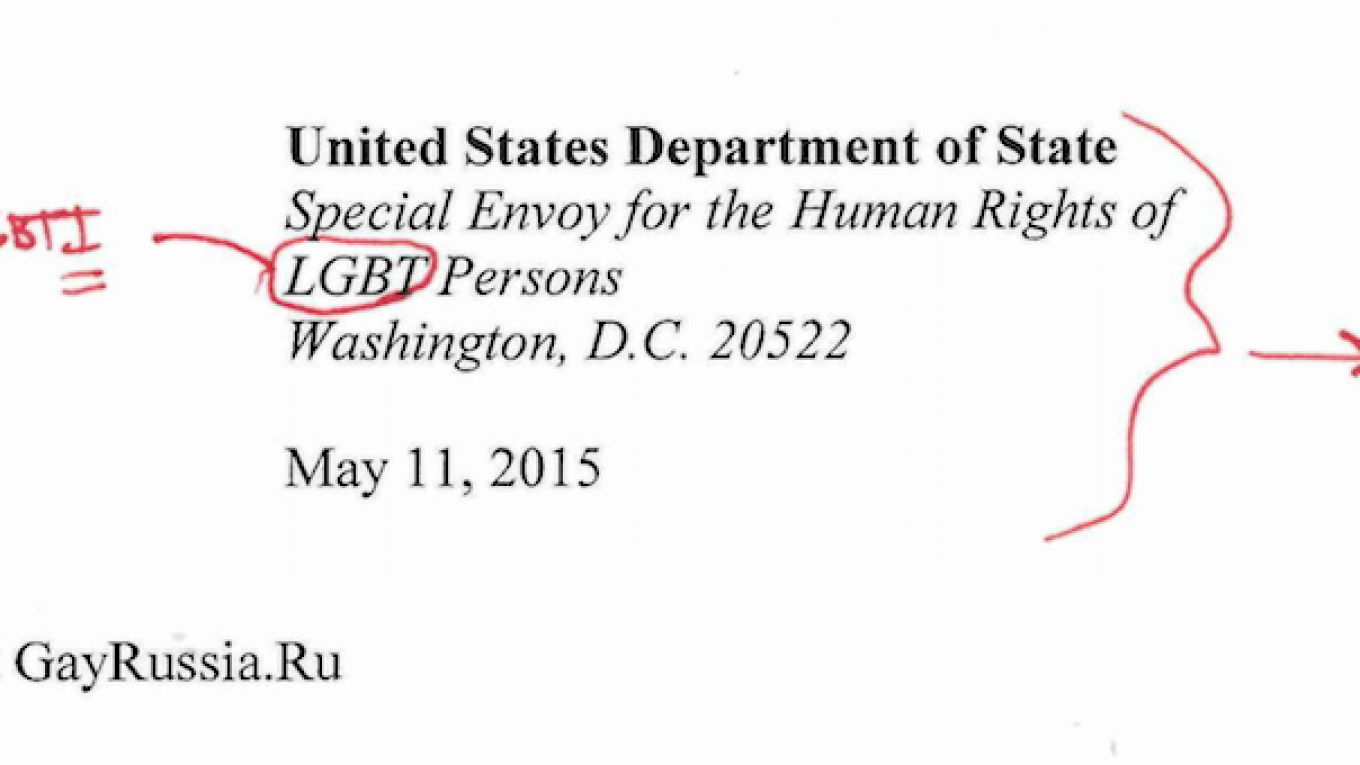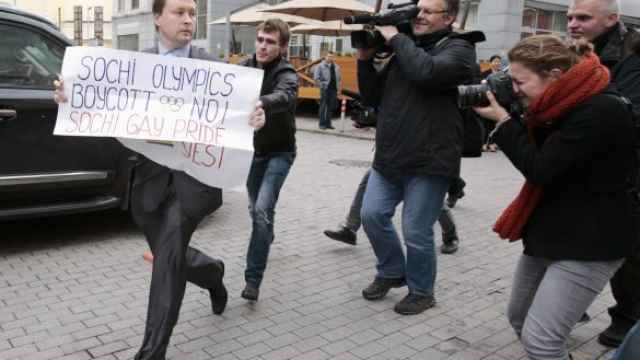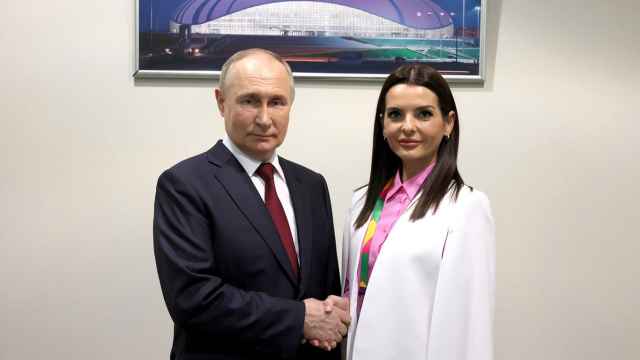The U.S. Embassy in Moscow has mocked the pro-Kremlin daily Izvestia for using fake letters, fraught with glaring grammatical errors, in the newspaper's attempt to illustrate what it cast as an exposé of Washington's meddling in Russia's politics.
“Next time you are going to use fake letters — send them to us. We’ll help you correct the errors,” the U.S. Embassy tweeted at Izvestia on Wednesday.
The newspaper had published an article earlier in the day, claiming the U.S. State Department was paying Russia's LGBT activists to “accuse” Russian officials and Kremlin-loyal politicians of being gay. Homophobia is widespread in Russia, and the “accusation” can ruin a politician's career.
“By the order of the U.S. State Department, there are attempts to accuse the most effective members of the Cabinet and the presidential administration of being of non-traditional sexual orientation,” Izvestia said in a bold sub-headline.
As proof, the newspaper offered letters that were supposedly hacked from the U.S. State Department, written by its officials and addressed to prominent Russian LGBT rights activist Nikolai Alexeyev.
The U.S. Embassy responded by picking one of the letters — no longer available online. Supposedly penned by a U.S. State Department official, the English-language letter was peppered with grammatical errors — many of which are commonly made by foreigners writing in English, but unlikely for a native English speaker to make.
Signed by U.S. State Department official Randy W. Berry, the fake letter misspelled his job title, and concluded with a strikingly unofficial Gmail address.
Berry is a bona fide State Department official who serves as the department's special envoy for the human rights of lesbian, gay, bisexual, transgender and intersex (LGBTI) persons. The letter, however, only used the term “LGBT,” instead of LGBTI, in both Berry's title and throughout the text.
The U.S. embassy delivered on its promise to help Izvestia with English grammar — tweeting a picture of the letter with copy edits in red pen.
.@izvestia_ru,в следующий раз,используя фальшивые письма,присылайте- поможем исправить ошибкиhttps://t.co/p1880iEWd9 pic.twitter.com/gq84eOvBXm
— Посольство США в РФ (@USEmbRu) November 18, 2015
Regarding the fake email address, the embassy merely indicated its astonishment, saying: “Really?? Gmail??”
In the fake letter, the writer thanked Alexeyev for helping stage a rally against Russia's “aggression” in Ukraine, and promised money to Russian LGBT rights groups.
The original — uncorrected and unedited — lines of the fake letter ran as follows: “Following the results of the rally United States Department of State made a decision to redistribute funds allocated for promoting democracy in Russia between human rights organizations. LGBT Human Rights Project GayRussia.Ru and other LGBT organizations will get increased financing at the expense of other opposition democratic organizations considering their low efficiency in developing civic society in Russia.”
Contact the author at newsreporter@imedia.ru
A Message from The Moscow Times:
Dear readers,
We are facing unprecedented challenges. Russia's Prosecutor General's Office has designated The Moscow Times as an "undesirable" organization, criminalizing our work and putting our staff at risk of prosecution. This follows our earlier unjust labeling as a "foreign agent."
These actions are direct attempts to silence independent journalism in Russia. The authorities claim our work "discredits the decisions of the Russian leadership." We see things differently: we strive to provide accurate, unbiased reporting on Russia.
We, the journalists of The Moscow Times, refuse to be silenced. But to continue our work, we need your help.
Your support, no matter how small, makes a world of difference. If you can, please support us monthly starting from just $2. It's quick to set up, and every contribution makes a significant impact.
By supporting The Moscow Times, you're defending open, independent journalism in the face of repression. Thank you for standing with us.
Remind me later.






